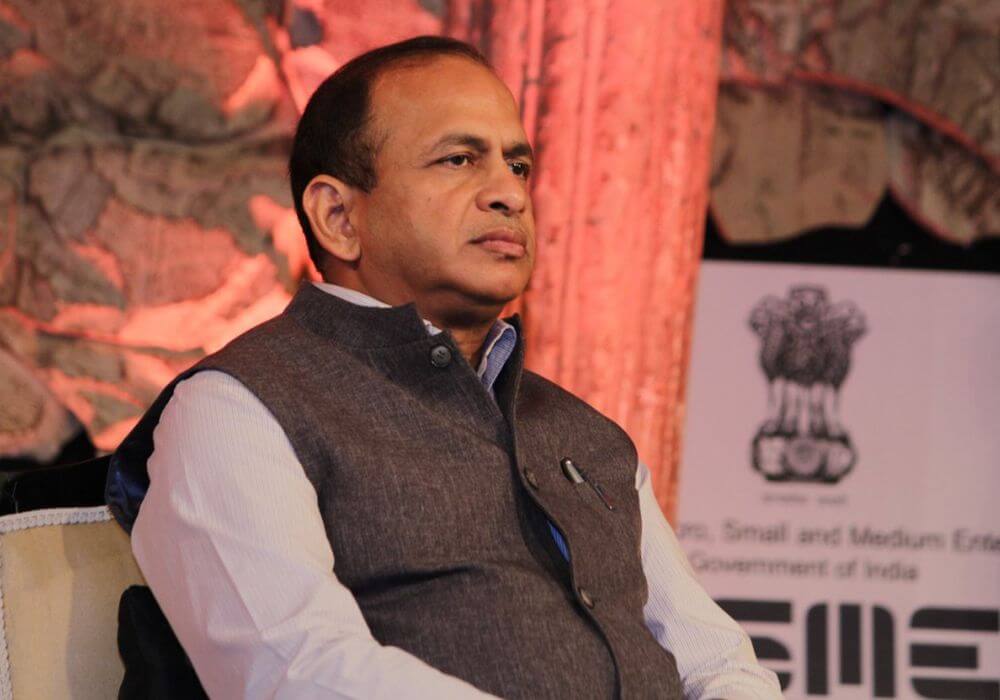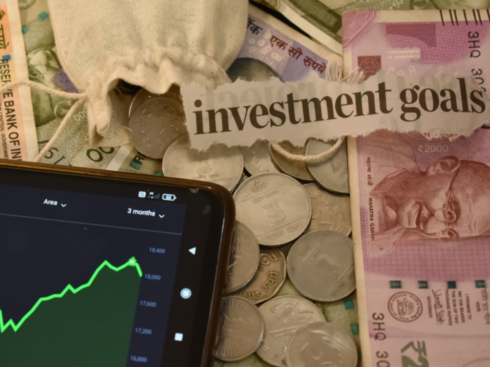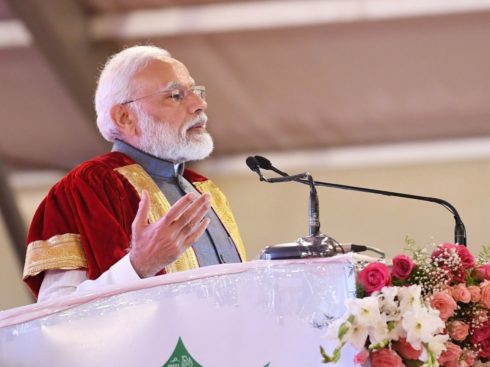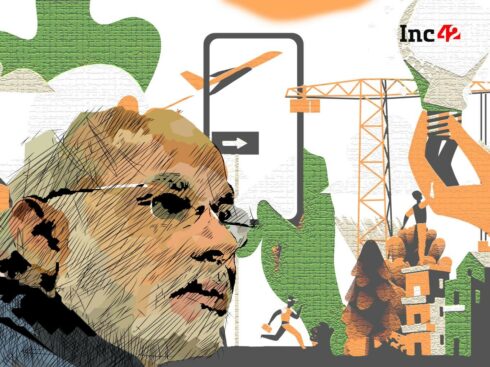SUMMARY
DIPP To Roll Out State Startup Ranking Index By December, Says Ramesh Abhishek During Inc42 Facebook Live AMA
In the 70 years since independence, India has evolved from a downtrodden, struggling nation into an international force to be reckoned with. Aiding the government in this ambitious mission is an army of promising startups that are working to bring change by embracing technology, disruption and innovation. Hailed as the world’s third-largest startup ecosystem, India is currently home to around 5,000 to 5,200 tech startups, having added 1,000+ new startups this past year alone.
Predictions by NASSCOM suggest that the number will likely increase 2x within the next three years. Today, the Indian startup network is populated by a fast-growing group of young innovators and problem solvers who collectively amassed $3.6 Bn in funding in Q3 2017. The ecosystem’s phenomenal growth in the last few years can be attributed to PM Narendra Modi’s sustained efforts to encourage entrepreneurship through a plethora of startup schemes and campaigns.
When it comes to bolstering the country’s startup ecosystem, the Department of Industrial Policy and Promotion has played a significant role, under the leadership of Secretary Ramesh Abhishek. Programmes like Make in India and Startup India currently fall under the purview of DIPP, which in turn makes Mr Ramesh a key person impacting industrial growth in our country.
An IAS officer who has held numerous positions in the public administration before joining DIPP in 2016, Mr Ramesh recently sat down with Inc42 for an engaging conversation about the Indian government’s ongoing initiatives for startups. Watch the complete video of the AMA below.
And here are the most interesting views that Mr. Ramesh offered during the Facebook Live AMA session:
Question: It’s no secret that the government is very serious about facilitating entrepreneurial activities in the country. Startup India is giving momentum to that. Can you share with some figures about how these campaigns have benefitted emerging startups?
Ramesh Abhishek: In the last one year and nine months, since Startup India programme was launched, we have been able to help more than 14,000 startups in various ways. Almost 4,700 startups have been recognised by DIPP, giving them a host of services, incentives and facilities. We have been able to provide $242.7 Mn (INR 1,587 Cr) in funding to startups.
This has been through Fund of Funds and all the various schemes by the Department of Biotechnology, Department of Science and Technology as well as Ministry of Human Resource Development. We have also provided more than $198.8 Mn (INR 1,300 Cr) for setting up different types of infrastructure, in terms of research parks, incubation centres, business incubators and startup centres, among others.
We have also answered 70,000 queries through the Startup Hub, which is operated by Invest India. This has been since April last year. As a matter of fact, we also have a scheme for facilitating startups in various IPR-related work, like trademark and patents. DIPP currently have more than 1,000 facilitators who are actually helping the startups.
We have rolled out a learning and development module in January this year. At present, there are over 180K people enrolled in this programme, of which around 8,000 have already completed the module. We have also set up 941 tinkering labs in schools. Through our Fund of Funds, there have been to a large number of interventions. Not to mention the several regulatory changes that we have made.
To that end, we are working with regulators and the Ministry of Corporate Affairs. DIPP also provides extensive marketing support to startups. There is a lot that we have done. But, we realise that it is a work in progress.
Question: We have 29 states and seven union territories, but only 16 states actually have dedicated startup policies. Is the central government taking any steps to help the state governments formulate their own startup policies?
Ramesh Abhishek: When Startup India programme was launched last year in January, only four Indian states had startup policies. Through our efforts and the initiatives of the states themselves, today 16 states have their own startup policies. Our teams from Startup India have worked with various states to help them come up with good policies, set up hubs that connect startups with government and other enablers in the ecosystem.
We feel that contributions of state governments are critical in this case. In a large country like ours, there can be a multiplier effect on the ground. The Government of India is doing a lot and will continue to do so. But states play a very important role as well.
Last year, we had a startup conference of all the states, along with incubators, investors and other stakeholders. This year too we held another conference. So much has changed in the last one year. Many states have come on board and we are actually looking forward to much greater involvement from other states this year.
Question: There have been reports that the DIPP is working on a state startup ranking framework. Can you shed some light on that?
Ramesh Abhishek: The ranking of states and other institutions is actually helping focus attention on many of the issues that are part of the ranking framework. Once you start ranking states, there is a sudden realisation that there is a subject that needs attention. Also, the states get to learn each other’s best practices.
This move is basically aimed at drawing attention of the decision makers to a particular issue. DIPP has already consulted individual states for our ranking framework. By and large, we have finalised it. We are hoping that, from December 1, we will be able to roll out an index of state startup rankings. Through this, we are evaluating a state’ support to its startup ecosystem.
So we are putting together a document, in which we listing out the state’s support to the emerging startups. This will help the states not only make good policies and schemes but also learn from each other. I think this evaluation in the public domain is very important.
Question: While India is progressing in terms of ease of doing business and also becoming the world’s third-largest startup ecosystem, there are also a lot of challenges, especially pertaining to climate change, pollution and infrastructure deficiencies. How is the government thinking of including startups in its efforts to conquer these problems?
Ramesh Abhishek: Unfortunately, our support from the government to startups started in a major way only in the last two years. If you see other countries like the US, China and the UK, they have been supporting startups for the last 40 years. The amount of work India needs to do is a lot. With respect to the issues concerned, today more and more government departments are identifying the challenges and encouraging startups to come up with technical solutions.
Recently, in March and April, a series of hackathons were organised by the Ministry of Human Resource Development, in which a large number of startups and institutions participated. Similarly, we are fostering various collaborations with other countries as well.
All the problems that Indians face in terms of health, education, drinking water and waste management are being presented to the startups. The government is grooming these companies to come up with feasible, cost-effective solutions.
Question: India is forging a lot of international collaborations. What the key features of these partnerships and how are they supporting startups in the country?
Ramesh Abhishek: International connect for our startups is very important. We not only need to learn from others, but we also need to work together for getting access to funds and global markets. I think our startups need to go out and work in other countries. Investors from other countries are also welcome to work in India.
We have been able to forge many collaborations. We recently had an innovation bridge with Israel in July this year. We have similar collaborations with Sweden and Portugal. We also have knowledge exchange programmes in many of these countries. DIPP is currently planning to create a similar exchange programme with Germany. The Government of India has a lot of these activities planned for the coming months to help bolster startups emerging in the country.
Question: The Startup India Online Hub has been creating a lot of buzz in the startup ecosystem. What are the major features and benefits it offers to startups?
Ramesh Abhishek: We are looking at Startup Hub as a kind of one-stop shop for all startup ecosystem players. We want entrepreneurs to have access to online resources. They should be able to contact mentors, incubators as well as funding agencies. Similarly, investors should be able to access and get more choices.
We want all stakeholders of the ecosystem on the Startup Hub. This will enhance networking and connectivity. Around 12,000 people have already registered on the hub. But we need to do much more and we are confident that this hub will make a big difference in connecting the various ecosystem players.
Question: Under the Startup India programme, Government had announced a credit guarantee fund for Startups. What is the progress on notifying the fund and what benefits can startups expect from it?
Ramesh Abhishek: The credit guarantee scheme will have a corpus of $306 Mn (INR 2,000 Cr). We have planned that we would be funding about 7,500 startups, with an average of $306K (INR 2 Cr) loan portfolio to each over a period of seven years. As part of this credit guarantee scheme, we will also be offering $2.2 Bn (INR 15,000 Cr) of debt over a seven-year period.
The proposal has already been recommended by the Ministry of Finance and it is now pending the consideration of the Cabinet. Once the approval has been obtained, we are going to roll out the scheme at the earliest.
Question: How can a startup participate in a government tender? How can Startup India help?
Ramesh Abhishek: One of the most important developments in the last one year has the creation of a government e-market platform. We will be connecting the Gen Next platform to the Startup Hub, so that all the registered startups in the hub will be able to connect directly to the Gen Next platform.
All the facilities available to startups by way of exemption of criteria of turnover and prior experience will be factored into it automatically. I think Gen Next will be a great platform to access all the government procurements in the coming years.
Question: What the role does the industry play in collaborating with the government for building a startup ecosystem?
Ramesh Abhishek: What we find is that large companies and corporates have their advantages. But startups have their own advantages of being innovative and nimble-footed. It really helps if the large industries with their strength and resources interact closely with the startups. We are seeing it in so many incubators around the country.
We find this in international collaborations as well. Industries can also benefit from the disruption and innovation that startups bring. The good news is that we are seeing many such collaborations happening on the ground.
Question: How will the country’s recent jump in ease of doing business ranking help startups?
Ramesh Abhishek: Ranking of 30 in the World Bank’s ‘Ease of Doing Business’ index means that the ground-level situation in India is changing. The World Bank creates these rankings based on the feedback from the users and stakeholders, not based on the claims of the government.
This is only a reflection of the way things are changing on the ground. We are aware that small businesses like startups are affected more by lack of ease of doing business. Larger companies can still remain afloat in such a difficult system. We are now making a complete change in the way the government interacts with businesses We are happy that states are doing the same thing.
Question: What are the new sectors gaining traction in the startup space?
Ramesh Abhishek: The understanding of startups here pertaining largely to tech startups. But now we are finding that there are many startups that are working to solve the problems of the country, for instance in the health, education and waste management sectors.
It is a very good development that now we have many non-tech startups as well. Also, within technology, there are areas of artificial intelligence, IoT, machine learning and so on. In these segments as well, startups are really making a mark.
Question: Any new announcements/achievements/initiatives under the Startup India campaign that you would like to highlight through our platform?
Ramesh Abhishek: We are finding as we work with more and more for startups that there is so much to be done. Access to funds is a big issue. For that, we are trying to see how angel investor networks can also avail the advantage of Section 56 of the Income Tax Act. At present, whatever money is invested by angel investors, one-third of that goes as tax for the investee company. We are trying to make it easier and hopefully, there will be a change in regulation that will protect the investment.
It is not the government’s intention to tax risky investments. For the time being, we are looking at a lot of favourable regulator and legal changes that will make funds available to startups. We are also hoping to connect startups with people in the government, public sector and even private sector that will help them find a market for their products and services. We have a lot of ideas and we will be implementing them. Feedback from people will be very helpful in tackling these problems.
Startups play an important role in driving a country’s economic growth. In India, tech startups bring with them much-needed innovation that could be instrumental in solving some of the country’s biggest social problems, be it in healthcare, education or waste management. With continued support from the government and its various departments, the startup ecosystem in India will be able to successfully foster a culture of entrepreneurship and disruption, which again would help in job creation. As stated by Ramesh Abhishek, forging partnerships with corporates, international players and foreign nations will be essential to maintain the growth of the Indian startup ecosystem in the coming years.



























